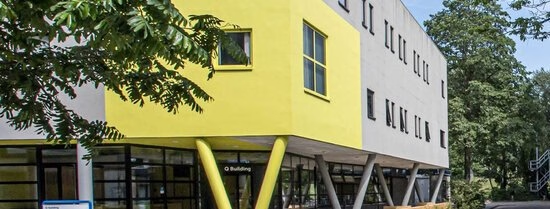On Friday 10 October, Erasmus School of Economics will organise the Workshop on Supply Chain Management in honour of the Valedictory Address of Professor Rommert Dekker, which is scheduled in the Aula of the Erasmus building on campus Woudestein at 16:00.
- Date
- Friday 10 Oct 2025, 10:00 - 15:00
- Type
- Workshop
- Room
- Q-Lounge
- Building
- Q Building
- Location
- Campus Woudestein
Programme
It is and has been my pleasure to work with Rommert on port related projects. In this contribution, I will reflect on some research done together with port stakeholders, the spin-offs to education, and my collaboration with Rommert. I will focus on the role of data in port logistics.
In real-life order fulfilment an individual customer orders can be much bigger than the average customer order. Typically, statisticians may consider these orders as outliers and remove them from the data. By doing so, the supply chain is not prepared for big orders. As always, once the problem is formulated, the solution is near. Both Rommert Dekker and presenter were confronted with this problem and tried to develop solutions for it.
Rommert's research is typically well grounded in theory, but also focuses on practical relevance and insights - and he has inspired me to do the same. In 2008, that led us to writing a paper with an easy derivation of a classic optimality result for inventory control. Lately, I have reused that result to derive a near-optimal and very easy to apply method for service level differentiation. Empirical testing on a real-life dataset with over 200 thousand stock keeping units show that inventory cost reductions of over 10% are realistic.
About twenty years ago, I started my doctoral studies under the supervision of Rommert Dekker. The academic system has changed substantially during those twenty years. I realize only today the extent by which Rommert was ahead of his time.
In this talk, we present on research that has been executed in collaboration with an OEM of agricultural systems who operates in (almost) all continents and provides after sales maintenance services for a large installed base. We present a scalable, engineer-friendly maintenance policy for systems with many heterogeneous components. This policy makes use of semi-urgent preventive replacements for components with a condition-based maintenance policy. In that way, the amount of unplanned maintenance actions executed outside the regular working hours of service engineers is reduced, and hence this policy contributes to keeping the after sales work attractive for service engineers.
This presentation reflects on the legacy of the European REVLOG project that Rommert coordinated from 1997 to 2002. It considers the impact of the project on both the literature and individual careers. The presentation then transitions into reporting on ongoing research addressing the role of chain-of-custody methods in sustainable production systems.
Organiser
- More information
If you have any questions about this workshop, please contact Remy Spliet.
- Related content


